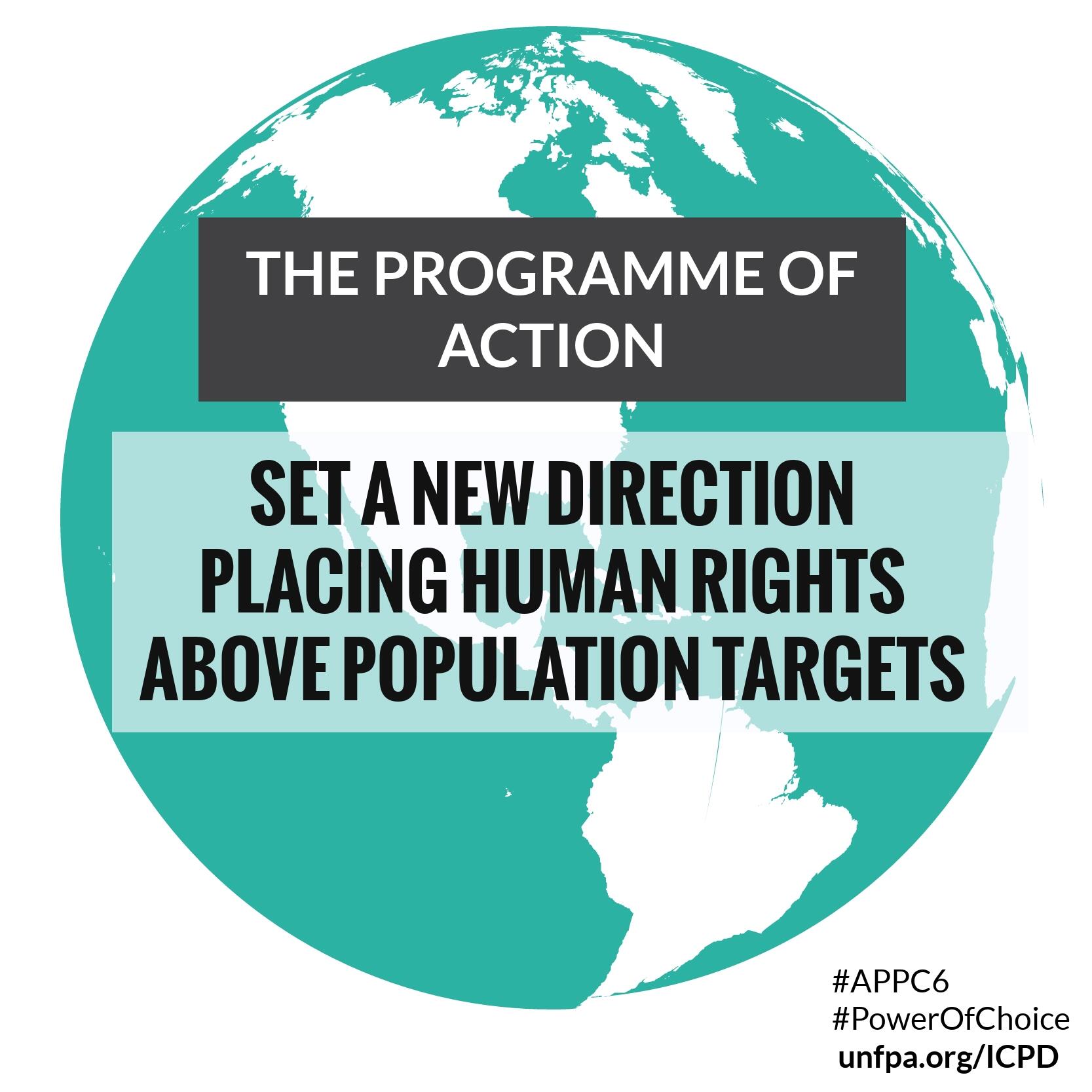Bangkok (ESCAP News) -- Senior government officials, United Nations representatives and civil society from across Asia and the Pacific gathered in Bangkok today for the start of the Midterm Review of the Asian and Pacific Ministerial Declaration on Population and Development.
Organized by the United Nations Economic and Social Commission for Asia and the Pacific (ESCAP) and the United Nations Population Fund (UNFPA), the three-day conference will take stock of the region’s progress in implementing the Programme of Action that came out of the 1994 International Conference on Population and Development (ICPD) in Cairo.
Diverse views on human rights, population, migration and urbanization, gender equality, sexual and reproductive health, and sustainable development merged into a remarkable global consensus, as 179 governments agreed to put people and their rights at the heart of development. This resulted in a bold set of commitments that seek to simultaneously balance social, economic and environmental development.
Twenty years later, in 2014, a comprehensive review of ICPD overwhelmingly reaffirmed that investing in individual human rights, capabilities and dignity is the foundation of sustainable development, firmly linking ICPD with the 2030 Agenda for Sustainable Development. In this context, ESCAP, in partnership with UNFPA, is supporting countries in Asia and the Pacific to implement the ICPD Programme of Action.
Although there has been significant progress across the region in poverty reduction, maternal health, education and overall life expectancy, there remain a number of outstanding challenges. Asia and the Pacific is ageing rapidly, and by 2050 the number of older persons is projected to more than double to 1.3 billion. This will have far-reaching impacts on societies in terms of future economic growth and possible rising inequalities. At the same time, about 700 million young people reside in the region, representing 60 per cent of the global youth. While only 20 per cent of Asia and the Pacific's workers are aged between 15 and 24, young people account for almost half of the region’s jobless.
Since ICPD nearly 25 years ago, the Asia-Pacific region has had to contend with a number of new and evolving challenges, such as deepening inequality, both across and within countries, and the deleterious impact of climate change and natural disasters on already vulnerable populations. On average, over 43,000 people per year have lost their lives due to disasters since 1970, with damages estimated at US$1.3 trillion.
“On its current trajectory, Asia and the Pacific will fall short of achieving all the 2030 Agenda’s Sustainable Development Goals, save universal education. In several areas the region is heading in the wrong direction. Inequalities within and between countries are widening. And population changes are exacerbating these challenges. The evidence is clear: older persons, migrants, the sick and disabled, and many women are particularly vulnerable to being denied access to essential services, entrenching poverty and perpetuating inequality,” said Ms. Armida Alisjahbana, United Nations Under-Secretary-General and Executive Secretary of ESCAP.
This week’s conference provides an opportunity for governments to share lessons learned, identify gaps and challenges, and agree on priority actions needed to accelerate the ICPD Programme of Action.
“A core component of ICPD, one that guides the work UNFPA does, is universal access to sexual and reproductive health, with rights and choices for all,” said Dr. Natalia Kanem, United Nations Under-Secretary-General and Executive Director of UNFPA. “Have we strengthened the right to choose when or whether to get married, when or whether to have children, and how many? How well have we done in strengthening gender equality and women’s empowerment? Where should our efforts be refocused to leave no one behind? These are among the key questions that will be discussed in Bangkok this week.”
The Midterm Review of the Asian and Pacific Ministerial Declaration on Population and Development is particularly crucial, as it will inform the global review of the ICPD Programme of Action at the 52nd Session of the Commission on Population and Development in New York in 2019.
“ICPD is more relevant now than ever,” concluded Ms. Alisjahbana. “It has clearly demonstrated that rights are intrinsically intertwined with development. We cannot have one without the other. Without fulfilling ICPD, we cannot achieve the 2030 Agenda for Sustainable Development and its Sustainable Development Goals.”
Note to Editors:
For more on the ICPD Programme of Action, and its significance within the context of the 2030 Agenda for Sustainable Development, please visit:
For media enquiries, please contact:
Ms. Kavita Sukanandan, Public Information Officer, Strategic Communications and Advocacy Section, ESCAP, T: (66) 2 288 1869 / E: sukanandan@un.org
Mr. Roy Wadia, Regional Communications Adviser for Asia and the Pacific, UNFPA, T: (66) 848 752 634/ E: wadia@unfpa.org
Ms. Celeste Hibbert, Communications Specialist, UNFPA Asia-Pacific, T: (66) 2 687 0118 / E: hibbert@unfpa.org


